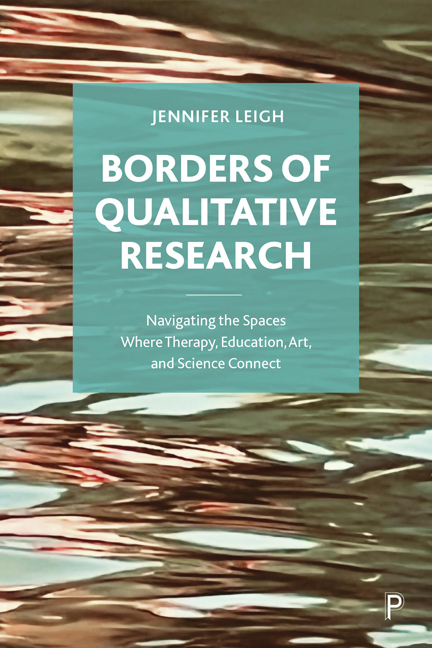 Borders of Qualitative Research
Borders of Qualitative Research Lessons from art
Published online by Cambridge University Press: 28 March 2024
Summary
What does it mean to be an artist? An art researcher? Or a researcher who uses art? Is the definition of an artist someone who ‘makes art’, or is artistic expression an integral aspect of human identity open to everyone? If artists draw from their experiences to facilitate their own and others’ creative processes, how and where is this process different from or the same as the ideas of reflection, awareness, and relationship I have discussed? How is it different from using creative research methods with participants? Just as using research methods that can have unintended therapeutic effect does not make a researcher a therapist working with therapeutic intent, using arts-based methods does not automatically make a researcher an artist.
Being an artist
There was a time, before I re-entered academia, that I described myself as an artist. In addition to the textile art I described in the introduction, my movement practice included creative work that served no extrinsic purpose other than to facilitate my clients to explore their body, the way it moved, and how it interacted with the environment around it. I acted as a consultant for bodies including Local Health Authorities, Primary Care Trusts, SureStart Centres, and Birmingham Royal Ballet, using my intuition and expertise to provide workshops and trainings (McMillan 2015). I used movement in many different ways to allow people to find out more about themselves and the ways in which they engaged with the world around them. My work spanned that of an educator, therapist, and participatory artist; using movement as the medium by which I engaged my audiences with the creative process and exploration of self and others rather than creating art for exhibition or performance. I was not a researcher.
When I began my doctoral studies and started my journey into research, my creative and artistic practice suffered. Coupled as it was with a turbulent and demanding time in my private and home life, I found that I did not have the capacity or space to feed an artistic practice beyond that funnelled into my creative research methods and writing. I was not completing a Practiceas-Research PhD, this was not an accepted form of doctorate in education.
- Type
- Chapter
- Information
- Borders of Qualitative ResearchNavigating the Spaces Where Therapy, Education, Art, and Science Connect, pp. 91 - 108Publisher: Bristol University PressPrint publication year: 2023


